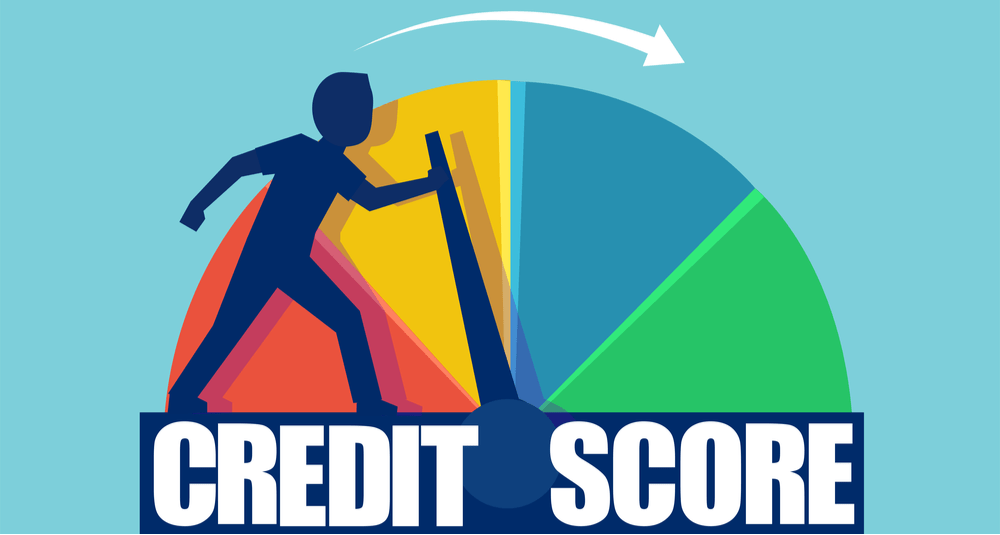
When you apply for new lines of credit, such as a credit card, mortgage, bank account or car loan, lenders will run a credit check to see if your likelihood of paying back any money borrowed.
Your credit report contains your credit history which is a detailed list of all the products that come with credit and your payment history. Whilst your credit score is the three-digit number which tells lenders how reliable or risky you are a potential customer. Let’s break it down in more detail:
Understanding Your Credit Report
Your credit report is basically a story of how you’ve managed your credit in the past and provides lenders with a portrait of your financial behaviour.
Your credit report gives lenders the answer to important questions that allows them to see if you’ll be a “good” customer who is able to make payments on time. Questions that lenders will want the answer to include:
- How much debt you already have?
- Do you make your repayments on time?
- Do you regularly take on more debt than is affordable?
These questions help lenders decide whether or not to give you access to a credit account with them at all, this really depends on the provider’s eligibility criteria – some lenders only accept customers with an excellent credit rating, whilst some are more lenient.
In some cases, depending on the lender, it will help them to see what APR (interest rate) they should charge you – if your credit score is on the lower side, the interest rate will tend to be higher meaning you will end up paying back more.
It’s not easy to interpret all the information in your credit report, which is where your credit score becomes important.
Credit Score Rundown
To put it simply, without your credit report, there would be no credit score.
Your credit score is the analysis of all the information in your credit report which makes it easier for you and your lenders see exactly where you stand. Lenders don’t have time to sift through your entire credit history and will often accept or decline you based on your credit score.
There are a number of credit reference agencies (CRA’s) such as Experian, Credit Karma and ClearScore where you can view your credit score. The higher the score, the less risk you pose to a lender – meaning you will be more likely to be accepted for credit.
Your credit score could be completely different depending on which CRA you use. So, just because you score 900 with one CRA and 700 with another doesn’t mean that your creditworthiness has changed – it simply means that CRA’s have a different scale they use to score you.
Typically, your credit score is grouped into four different categories: Poor, Fair, Good and Excellent and each category usually reflects the types of products and rates you’ll be eligible for.

But What Factors Influence my Credit Score?
When it comes to your credit score there are a number of factors which can have an impact, including:
Your Payment History
The most important factor which accounts for 35% of your credit score and highlights any missed payments across all your accounts. Even one missed payment can have a negative impact on your score.
Credit Utilisation
This reveals how much credit you’re using, or utilising, and is calculated by dividing the total amount of credit you’re currently using by the total amount of credit you have available. Using more than 25% can have a negative impact on your score.
Length of Your Credit History
How old are your accounts? The longer you’ve had them the better in the eyes of a lender. This accounts for 15% of your score. Even if you don’t need a particular line of credit anymore, it’s worth keeping the account open so you don’t impact your score.
Range of Credit
People with the best scores tend to have a whole mix of credit products in their files, such as credit cards, car loans, mobile phone contracts, instalment repayments and mortgages. This equates for 10% of your credit score.
New Lines of Credit
The simply means the number of credit accounts you’ve opened –including the number of Hard Credit Searches made by lenders. This again accounts for 10% of your credit score.
Tips to Improve Your Score
With a basic understanding of what impacts your score, you will find it’s easier to assess the areas that have some room for improvement. Your credit score needs nurturing and will take time to heal and improve. Here are five things that will have a positive effect on your score over time:
- Pay Your Debts off – this sounds obvious, but it’s really worth doing to reduce your credit utilisation. Creating a budget may help you to achieve this.
- Pay Your Bills on Time – Payment history is the most important factor on your credit score, and any missed payments will stay on your record for six years. So, keep up with your monthly repayments and your credit score should improve.
- Organise any Outstanding Payments – The more time that has gone by since the payment was due, the bigger impact on your score. So, try to get this under control to prevent any further damage.
- Dispute any Incorrect Information – Have you assessed your score recently? Any incorrect information could be pulling down your score. If you notice something that doesn’t seem right, initiate a dispute immediately to get the inaccuracies fixed.
- Refrain from Taking on New Credit – This will reduce the number of hard enquires on your credit report, especially if you’re not sure whether you will be approved as these searches remain on your file for two years.
Other Credit Related Details to Consider
It’s worth noting that your credit report isn’t the only things that a lender takes into account when deciding to offer you a line of credit.
Lenders will also review the information you’ve provided in your application, your past relationship (if any), and your level of income and current outgoings that are not mentioned within your credit report, they may also want to know what you’re using the money for.
Additionally, different credit reference agencies may have different scored based on their ranking criteria and how quickly they update your file with any changes to your debt (such as new credit lines, the current balance of your credit accounts and if any accounts have been closed).
Finally, it’s important to know that even if you have a good credit score across the different credit reference agencies – it’s no guarantee that you’ll be accepted for credit, but it can be a good indicator.





